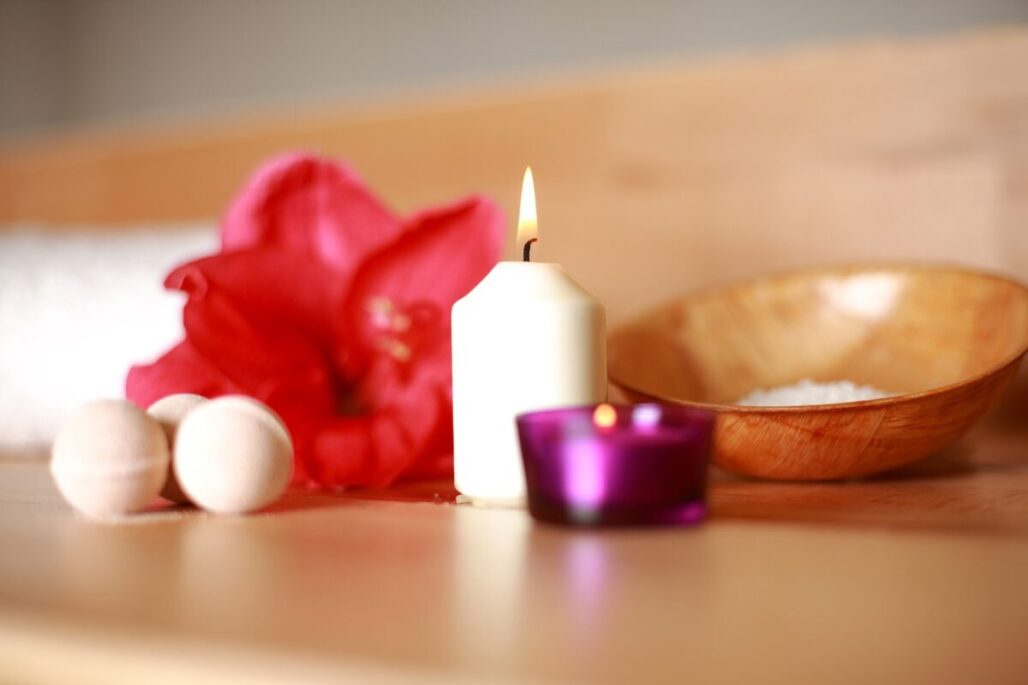Now anyone who has spent time in church will know the Sunday school answer: Jesus. But this isn’t actually all that helpful. What is helpful is being shown in some detail why and how Jesus can be said to be the answer. A thorough treatment of this is beyond the scope of this article, but there are excellent resources for those who love books and even for those who love streaming high-quality video teaching.
This article is simple: five key ideas and strategies that have been helpful to me and others in the fight against lust and pornography. Let’s jump right in.
1. Believe that it is Possible to Walk in a Pattern of Purity
To adapt a phrase from John Owen’s Mortification of Sin, it is both possible and necessary to learn to walk daily over the necks of our lusts. If we do not believe this, we will not get very far in our struggle against sin. It’s my observation that clarity on this reality of the Christian life varies wildly across typical evangelical churches. It must be said: many men and women, young and old, have essentially made peace with besetting sin in their lives and do not really believe that a pattern of victory is possible. “They dress the wound of my people as though it were not serious. ‘Peace, peace,’ they say, when there is no peace” (Jer. 6:14).
I do not say perfection is possible, but a consistent pattern of walking in obedience most certainly is. Pornography use, hidden from public view and allowed to fester in the intimacies of the home, is sure to weaken and disease the soul if left unmortified like this.
In Titus 2:11-12 we see that God’s grace trains “us to renounce ungodliness and worldly passions, and to live self-controlled, upright, and godly lives in the present age.” These two verses alone are instructive for our subject. First, we see that grace is by no means set in contrast to efforts at living in a self-controlled and godly way; in fact, it is grace which trains us to do these things. Second, we see this verse assumes such lives are possible: renouncing worldly passions and walking in purity.
Lastly, Paul locates this pattern of obedience “in the present age.” It is true that sexually explicit material is more available today than at any other time in living memory, but if any previous age could claim to rival the debauchery of our late modern decadence, it is the Greco-Roman world in which Paul was writing. To put it plainly, if lives of sexual purity were possible in Paul’s day, they are possible in ours. Do we actually believe that?
2. Learn to Exert Grace-Driven Effort
Fighting sin requires, well, fighting. And fighting, for those who have never tried it, requires a massive amount of effort. It’s not unusual for those shaped by the gospel-centered movement to feel unsure how disciplined effort can be reconciled with the effort-free grace of salvation. If salvation is all of grace, isn’t there a danger in speaking of strict moral demands? Won’t that lead to legalism?
To such a person, I say: “I love your clarity on the gospel, but let’s look at the Bible together.” The New Testament is replete with exhortations and commands to holiness, godliness, and purity, so whatever else gospel clarity might mean, let it not mean we ignore parts of Scripture.
Now that we’ve established there will be effort required, we must ask: what kind of effort? Here, as in so many places, we have much to learn from our forebears. Let’s draw a distinction between grace-driven effort and white-knuckled effort.
The clearest exploration of this distinction that I’ve come across is a short piece by the 18th-century Scottish pastor Ralph Erskine, which you can find here. In it he shows just how different legalistic effort at fighting sin is from gospel effort; from their source motivations, their methods, their goals, their extensiveness, and their success. Erskine explains:
The legalist forsakes sin, not because he is alive, but that he may live. The believer mortifies sin, because God loves him; but the legalist, that God may love him. The believer mortifies, because God is pacified towards him; the legalist mortifies, that he may pacify God by his mortification.[1]
These two kinds of effort look much the same on the surface, but they arise from very different sources. Friend, let your effort be mighty in your fight against sin, but let it be rooted in the mightiness of Jesus’ grace towards you.
3. Desire Universal Holiness
One of John Owen’s insights is that God will hardly grant the Spirit’s power to overcome a troublesome sin like lust if the believer has no interest in overcoming all his sins. In other words, it is possible to wish to be free from the grip of pornography and lust for selfish reasons—to have peace of mind and to feel better about oneself. But when the Spirit is truly at work in the believer’s heart, we feel a hatred for sin as sin, because of its offensiveness to the Lord who loved us and gave his life for us. Owen puts it memorably:
“Do you think he will free you from this so you are free to go and commit another sin which grieves Him? ‘No’, says God, ‘If I free him from this lust, I will not hear from him any more, and he will be content in his failure.’ We must not be concerned only with that which troubles us, but with all that troubles God.“[2]
This ought to prompt some self-reflection. Is it possible that I might be trying to get this issue under control in my life for some other reason than to please my Lord and be more like him? I’m sorry to say it is all too possible. Let us sit in a moment of peculiar stillness and honesty and answer the question: Do I really desire to be free of every kind of sin? Can I honestly say I want to be holy in every area of my life?
The answer to that question is all too often “no” in my own life, but the practice of asking it prompts me to return again to a particular simplicity and purity of desire: Lord, make me more like you in every way. Or, in the words of Psalm 139:23-24:
“Search me, God, and know my heart;
test me and know my anxious thoughts.
See if there is any offensive way in me,
and lead me in the way everlasting.”
4. Guard Your Spiritual Power
One of the worst effects of giving in habitually to willful sin—making choices by habit or addiction that you know are sinful—is that it saps you of spiritual power. It is like a cup with a hole in the bottom. You never can stay full even when God’s Spirit moves in you and revives you because indulging the flesh grieves the Spirit and opposes his work: “the desires of the flesh are against the Spirit” (Gal 5:17).
It is one thing if I mistakenly trip my friend. I can honestly apologize and be reconciled rather easily. The tripping was real but it wasn’t a personal rejection or attack. But it is another thing entirely if I slap my friend across the face and insult him. I cannot so easily apologize and be reconciled, since the sin was more personal and willful.
It can be like that in our relationship with God also—we can begin to feel that we cannot come to Him for the millionth time apologizing about the same sin that we continually make plans to commit again. Am I really sorry? I know I’m just going to do it again. My repentance feels shallow and fake, and perhaps it is. Intimacy with God is therefore impossible, and I would rather not face the pain of that distance, so I numb it with distractions.
In this state, we have almost no spiritual power. How can we genuinely share the hope and joy of the gospel when we are not able to enter into it ourselves? How can we lovingly rebuke our brother or sister for sin when we are secretly indulging it in our own lives? How can we look our child in the eye and promise them that virtue, integrity, honesty, and purity are better than sin when we are not walking in those virtues ourselves?
So we stay silent, and the voice of our conscience grows quieter and quieter, and in a thousand little ways we therefore fail to minister to those God has placed around us, and our spiritual impact is reduced to almost nothing. What a victory for Satan! Here is a soldier in God’s army that has been rendered almost completely ineffective. Friend, don’t let this be true of you. But if you are stuck in that cycle, then you need this fifth and last strategy:
5. Drag Sin into the Light and Apply Full-Strength Gospel
It’s not complicated: sin withers in the light. Its power, like an ice cube in the sun, melts away. To drag the sin of lust into the light means confessing that sin to another believer in your life with enough specificity that the reality is made clear. Evasive and ambiguous language about vague struggles and temptations will not do; use Biblical language and categories. God forgives sins, not struggles. “Therefore confess your sins to each other and pray for each other so that you may be healed” (James 5:16). To be clear, reading this article does not count as dragging your sin into the light; for that you need to talk to your pastor, friend, or spouse.
The confession of sin is the verbal depiction of reality. I did those things, I thought them, I believed the lies, I drank from those empty cisterns. Only after we are operating in reality, with the truth out on the table, can the gospel be brought to bear. And oh what a power it has! The gospel “is the power of God,” writes Paul in Romans 1. Friend, you might want to just go ahead and read that again: it is the power of God.
Anyone stuck in a pattern of habitual sin knows the cycle: sinning, repenting, self-loathing, promising God to do better, and falling again. Eventually, we begin hiding from God, avoiding him, feeling too guilty, ashamed, or even dirty, to approach him. But this very human response of hiding—in which we follow our first parents who hid from God in the garden—is antithetical to the glorious truth of the gospel.
Instead of hiding after your latest failure, when you are most covered in shame and weighed down with guilt; in that moment we are called to believe the truth that God forgives the unrighteous. That the gospel is for sinners. Yes, Christ’s blood is that powerful, his mercy that great, the Father’s love that strong.
Now we’re talking about something that can break the chains of shame and usher a flood of joy into the heart that makes the pleasures of porn seem like the paltry ashes that they are. Now we’re talking about the heart-transforming antidote: the mighty, sin-crushing, grave-defeating love of Christ for you and me.
[1] https://www.monergism.com/blog/difference-between-legal-gospel-mortification
[2] John Owen, Mortification of Sin, Banner of Truth, abridged by Richard Rushing, 2004, p. 51
By Phil Cotnoir / Antidote: Five Strategies to Break free of Porn’s Poisonous grip – The Gospel Coalition | Canada










